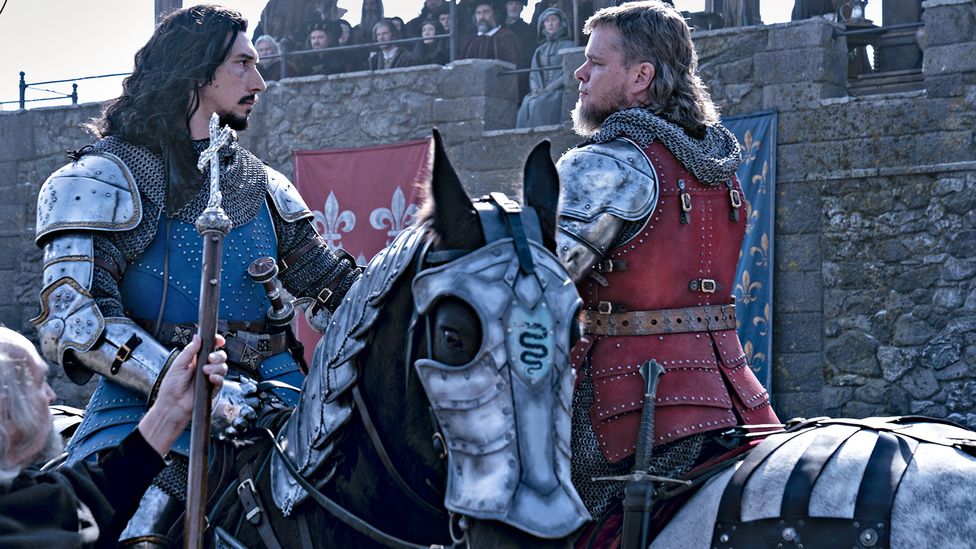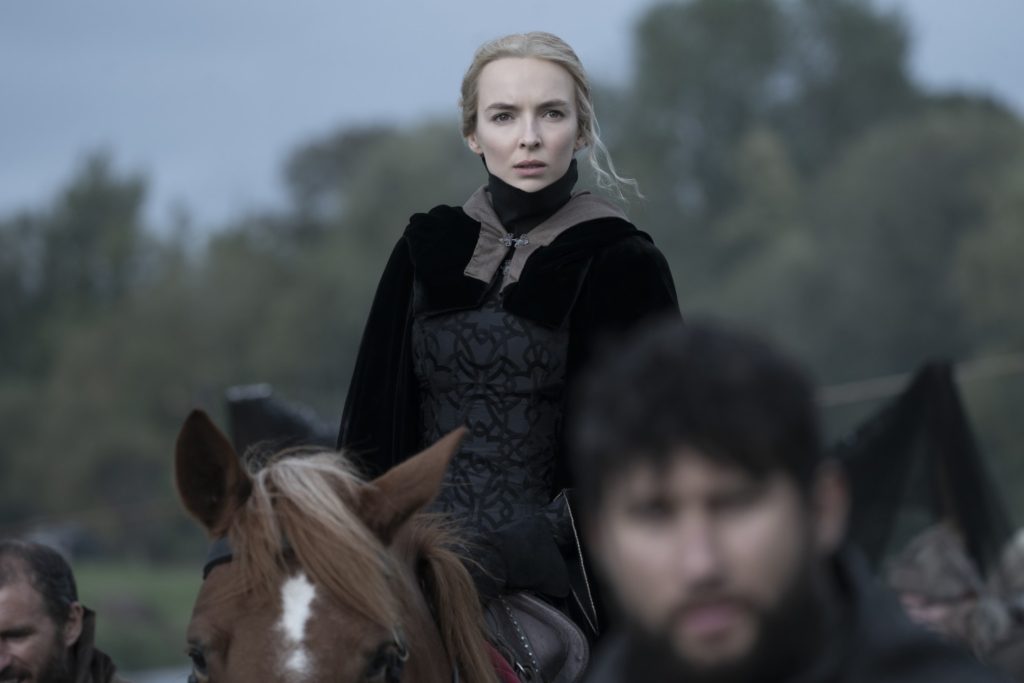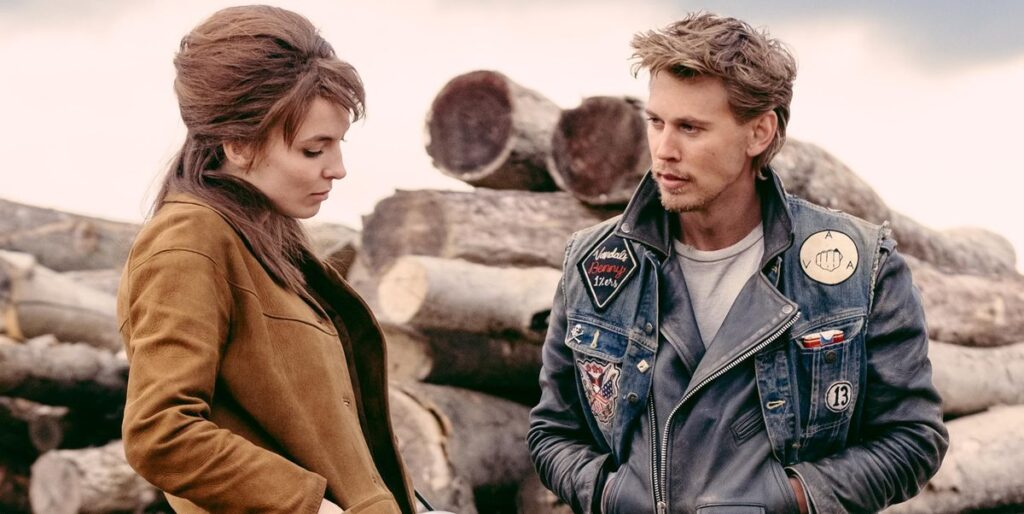
The Bikeriders is Jeff Nichols’ engrossing exploration of the culture of a 1960s Midwestern motorcycle gang and its (unfortunate) evolution. The source material is a book by a photographer who embedded himself with a real biker gang, and taped interviews as well as photographing them.
The gang was founded by Johnny (Tom Hardy), inspired by a TV rebroadcast of The Wild One, in which the biker played by Marlon Brando is asked what are he is rebelling against, and replies, Whadda you got? The bikers are a collection of misfits who share an ethos of breaking every available rule. Of course, none of these guys know what an ethos is, let alone intend to have one.
The most reckless biker is Benny (Austin Butler), whose girlfriend Kathy (Jodie Comer) is fiercely in love with him, but at most agnostic about the biker lifestyle. We see the story of the 1960s gang in flashback; Kathy, from the 1970s, narrates the story.
The Bikeriders bears out Nichol’s great gift as a storyteller – recognizing the humanity in his characters. I guarantee that I would, in real life, not care one whit about any of these characters. But, in The Bikeriders, I did care and was deeply invested in them.
Nichols’ previous films Shotgun Stories, Take Shelter, Mud and Loving, have each made my list of their year’s best movies. Those films, three fictional and one historical, tell the stories of redneck brothers betrayed by their father, a quasi-supernatural psychiatric decompensation, a backwoods coming of age and interracial love in the Jim Crow South. What all of them have in common with The Bikeriders are the authentic, compelling characters.
After all, what mostly happens in The Bikeriders is drinking, fighting and riding motorcycles – and the plot traces the natural consequences. Motorcycle riding is a relatively dangerous activity, as are binge drinking and fighting, so you won’t surprised that not everyone comes out unscathed
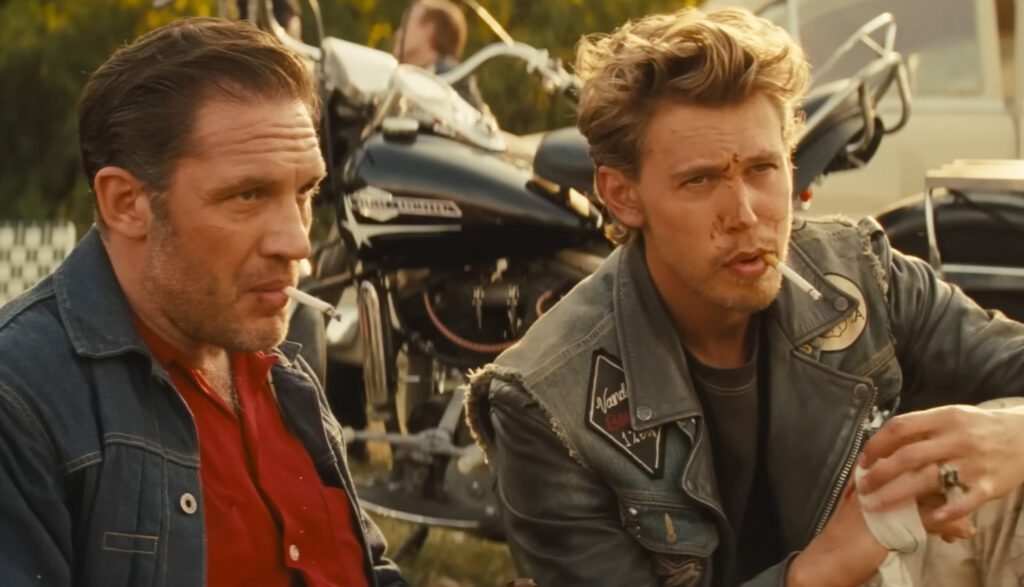
As Johnny, Tom Hardy is an amalgam of world weariness and alpha power. Hardy is known for his physicality, but his Johnny looks like more of an average guy than his characters often do; he doesn’t look scary at first glance, but no one wants to mess with him. Hardy is able to project internal steeliness.
The Wife noted that Austin Butler just looks like movie star. Indeed, when a barroom crowd parts so that Kathy can first glimpse Butler’s Benny at the end of a pool table in all his hunkiness, the scene evokes when John Garfield first sees Lana Turner in The Postman Always Rings Twice, or when Burt Lancaster first sees Claudia Cardinale in The Leopard. Benny is so devoid of emotion for most of the movie, the key to Butler’s performance is making us wonder whether there’s any empathy buried deep down in there someplace. Is Benny a one-dimensional sociopath or somebody able to repress his feelings?
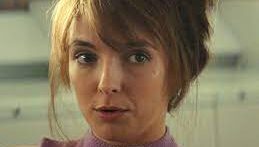
The Bikeriders is a showcase for Jody Comer, whom I had most recently seen playing a medieval French noblewoman in The Last Duel, as the biker girlfriend brimming with ambivalence. The Bikeriders works because of Comer’s matter of fact and perceptive narration; Kathy is the only surviving character who is observant and articulate enough to tell the story. Comer’s performance definitely merits an Oscar nomination.
As Kathy, Comer, who grew up in and lives in Liverpool, sounds like a lifetime Chicagoan; it’s the best American regional accent in the movies since Frances McDormand’s Marge Gunderson in Fargo.
Nichols essentially discovered and launched the career of Michael Shannon in Shotgun Stories; Shannon has acted in all of Nichol’s films except Loving. Shannon is again wonderful here in a small, juicy role. Emory Cohen and Norman Reedus sparkle as gang members Cockroach and Funny Sonny, respectively.
Nichol’s character-driven slice of biker life is a grand movie, and Jodie Comer elevates it even more.

